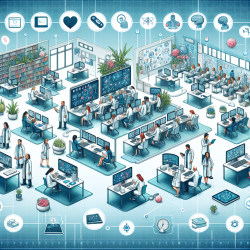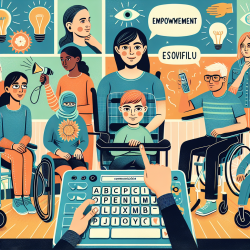Introduction
The COVID-19 pandemic has presented unprecedented challenges to medical education globally. As a Special Education Director, the insights from the research article "Exploring the global impact of the COVID-19 pandemic on medical education: an international cross-sectional study of medical learners" provide a valuable opportunity to reflect on and improve educational practices. This blog will explore how practitioners can implement the outcomes of this research to enhance their skills and encourage further research in the field.
Understanding the Impact
The study surveyed 6,492 medical learners from 140 countries, revealing significant disruptions in medical education due to the pandemic. Most medical schools transitioned to online learning, raising concerns about the quality of education and progression in training. The study highlights the need for innovative strategies to address these challenges, emphasizing the importance of learner engagement and well-being.
Implementing Research Outcomes
Practitioners can leverage the study's findings to improve their educational practices by focusing on the following areas:
- Enhancing Online Learning: While online learning became a necessity during the pandemic, it is crucial to ensure its quality. Practitioners should focus on creating interactive and engaging online modules that cater to diverse learning styles. Incorporating self-directed learning resources with structured guidance can motivate learners and maintain educational momentum.
- Addressing Learner Well-being: The pandemic has exacerbated existing stressors for learners. Practitioners should proactively provide systemic support, including access to counseling, peer support systems, and wellness resources. A holistic approach to learner well-being is essential to ensure mental, physical, and social wellness.
- Utilizing Learners Effectively: Engaging learners in meaningful roles during emergencies can enhance their educational experience. Practitioners should consider the training level and skillset of learners to assign appropriate clinical or non-clinical tasks. Providing proper training on personal protective equipment and patient care is vital for those working clinically.
- Improving Communication: Clear and concise communication with learners is crucial during disruptions. Practitioners should provide regular updates on program changes, timelines, and available resources. Transparency in decision-making processes can reassure learners and reduce anxiety.
Encouraging Further Research
The study provides initial empirical insights into the impact of COVID-19 on medical education, highlighting areas that warrant further research. Practitioners are encouraged to explore the long-term implications of the pandemic on learner outcomes, patient care, and health system performance. Collaborative research efforts can lead to evidence-based strategies for teaching, engaging, and supporting medical learners during similar events in the future.
Conclusion
The COVID-19 pandemic has challenged the status quo of medical education, but it also presents an opportunity for transformation. By implementing the outcomes of the research and encouraging further exploration, practitioners can enhance their skills and contribute to the evolution of medical education. To read the original research paper, please follow this link: Exploring the global impact of the COVID-19 pandemic on medical education: an international cross-sectional study of medical learners.










